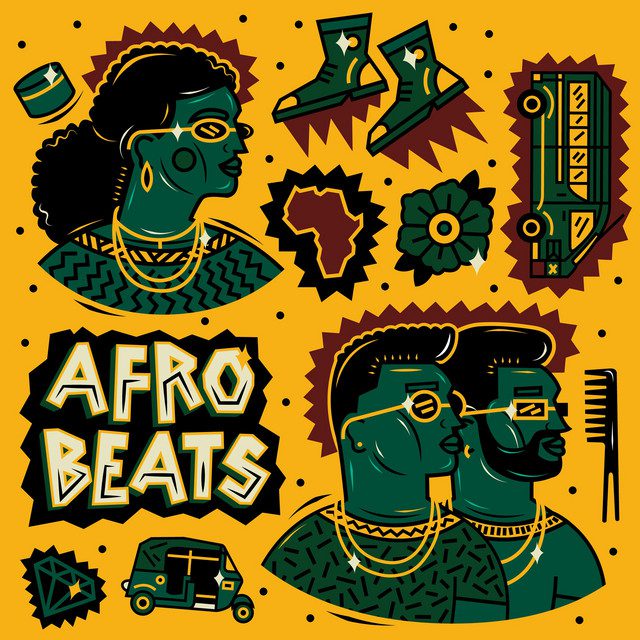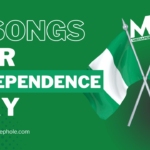
Imagine a sound that’s equal parts infectious, rhythmic, and undeniably African. Welcome to Afrobeats, Nigeria’s explosive music genre conquering the globe. From humble beginnings to international stardom, Afrobeats has evolved from a local phenomenon to a worldwide sensation, inspiring artists and shattering cultural barriers. With its unique blend of traditional Nigerian music styles, Afrobeats has captured the hearts of music lovers worldwide.
The Evolution of Afrobeats: From Local Roots to Global Phenomenon
Afrobeats originated in the 1960s and 70s, emerging from traditional Nigerian music styles like Highlife, Juju, and Fuji. Pioneers like Fela Kuti and King Sunny Adé laid the groundwork for the genre’s unique sound. Fela Kuti’s Afrobeat movement, which combined traditional Yoruba music with jazz and funk elements, paved the way for Afrobeats’ global appeal. Fast-forward to the 2010s and Afrobeats began its international ascent, captivating audiences with its infectious rhythms and energetic beats.

The genre’s early success was fueled by artists like Wizkid, Davido, and Tiwa Savage, who broke through the Nigerian music scene with their catchy hooks and danceable beats. Their music spread rapidly across Africa, and soon, international artists took notice. Collaborations with global stars like Drake, Beyoncé, and Ed Sheeran solidified Afrobeats’ position on the world stage.
Early Adopters: International Collaborations
The seeds of Afrobeats’ global success were sown through strategic collaborations. Artists like Drake, Beyoncé, Ed Sheeran, Kanye West, Justin Bieber, Chris Brown, and Cardi B have all teamed up with Afrobeats stars, introducing the genre to new audiences worldwide. These collaborations have challenged stereotypes about African music, promoted cultural exchange, and empowered African artists.

Drake’s “One Dance” (2016) with Wizkid and Kyla marked a turning point for Afrobeats. The song’s massive success – over 1.5 billion views on YouTube – opened doors for Nigerian artists. Beyoncé’s “Already” (2020) with Shatta Wale further cemented Afrobeats’ global appeal. Ed Sheeran’s “River” (2019) with Eminem and Wizkid showcased Afrobeats’ versatility.
Afrobeats Goes Global
Afrobeats’ global appeal has led to exciting collaborations with international stars. Major Lazer’s “Particula” (2017) with Nasty C, Ice Prince, and Jidenna blended Afrobeats with electronic dance music. Diplo’s “Bank Roll” (2017) with Mr Eazi and RAYE merged Afrobeats with hip-hop. Steel Banglez’s “Your Lovin'” (2018) with MØ and Tiwa Savage combined Afrobeats with R&B.
These collaborations have broken cultural barriers, united global audiences, and showcased African talent. Afrobeats concerts are selling out stadiums and arenas worldwide, with Wizkid, Davido, Burna Boy, Tiwa Savage, and Mr Eazi leading the charge.
You may also like: Throwback Thursdays: 7 Nigerian Music Classics That Never Get Old
Breaking Cultural Barriers
Afrobeats has shattered cultural barriers, introducing African music to new audiences worldwide. The genre’s infectious rhythms and energetic beats have transcended language and geographical boundaries. Afrobeats has become a symbol of African pride, empowering artists to showcase their heritage.

Collaborations have played a crucial role in breaking cultural barriers. Artists like Wizkid and Davido have performed at global festivals like Coachella and Glastonbury, introducing Afrobeats to diverse audiences. Afrobeats-inspired tracks dominate playlists on Spotify, Apple Music, and TikTok.
Afrobeats’ Global Domination: Sold-Out Shows and Chart-Topping Hits
Afrobeats concerts are selling out stadiums and arenas worldwide. Wizkid’s sold-out O2 Arena show (2019) marked a milestone for Nigerian artists. Davido’s record-breaking 02 Arena concert (2019) further solidified Afrobeats’ global appeal. Burna Boy’s African Giant tour (2019-2020) showcased Afrobeats’ versatility.

The Next Generation: Contemporary Afrobeats Artists
The genre’s future shines bright with Fireboy DML, Joeboy, Rema, Teni, Niniola, Ayra Starr, and Tems leading the charge.
Fireboy DML’s soulful voice captivates audiences, while Joeboy’s Afrobeats-R&B blend gains international attention.
Rema’s experimental sound pushes boundaries. Teni’s distinctive vocals earn critical acclaim.
Niniola’s electronic-hip-hop fusion gains global recognition. Ayra Starr’s powerful voice shines in hits like “Rush” (2022).
Tems’ soulful voice and genre-bending sound garner international praise, solidified by her collaboration with Drake on “Fountain” (2021).
Other notable artists like Simi, Adekunle Gold, Falz, and Nonso Amadi contribute significantly. This new wave pushes boundaries, experiments with diverse sounds, and appeals to a broader audience.

Afrobeats’ Impact on Global Music Trends
Afrobeats is influencing global pop and hip-hop, inspiring fusion sounds, breaking language barriers, and showcasing African talent. The genre’s impact will be felt for generations to come.
Afrobeats has inspired collaborations between African and international artists. Major labels like Universal Music Group, Sony Music, and Warner Music Group have signed Afrobeats artists, recognizing the genre’s global potential.
The Economics of Afrobeats
Afrobeats generates millions of dollars in streaming royalties, lucrative endorsement deals, and sold-out concerts and festivals. The genre’s economic impact extends beyond Nigeria, contributing significantly to Africa’s music industry.
Streaming platforms like Spotify, Apple Music, and YouTube have played a crucial role in Afrobeats’ global success. The genre’s popularity on these platforms has led to increased revenue for artists and producers.
Overcoming Obstacles: Challenges and Solutions
Despite success, Afrobeats faces piracy, limited infrastructure, and cultural appropriation. Piracy remains a significant challenge, with many artists struggling to receive fair compensation for their work. Limited infrastructure, including inadequate recording studios and distribution networks, hinders the genre’s growth.
Cultural appropriation, where international artists adopt Afrobeats elements without proper understanding or credit, threatens the genre’s authenticity.
To overcome these challenges, investing in music education and infrastructure, promoting cultural exchange and collaboration, and empowering African artists to take ownership is crucial.
Initiatives like the African Music Development Programme (AMDP) and the Nigerian Music Industry Report (NMIR) aim to develop the continent’s music industry. These efforts will help address piracy, infrastructure limitations, and cultural appropriation.
Afrobeats’ Bright Future
As Afrobeats continues to shape global music trends, expect more international collaborations, innovative fusions, rising stars, and continued global success.
The genre’s future is bright, with artists pushing boundaries and exploring new sounds. Afrobeats will remain a significant force in global music, inspiring future generations.

Conclusion
Afrobeats’ remarkable journey showcases music’s power to unite cultures and transcend borders. From humble beginnings to international stardom, Afrobeats has evolved into a worldwide sensation, inspiring artists and shattering cultural barriers.
As Afrobeats continues to shape global music trends, its impact will be felt for generations to come.




